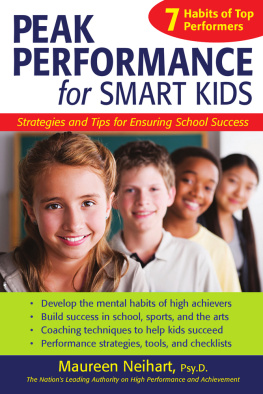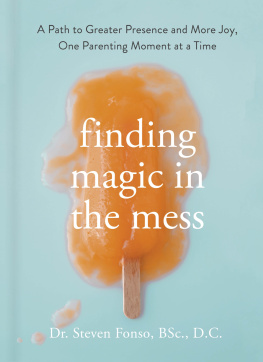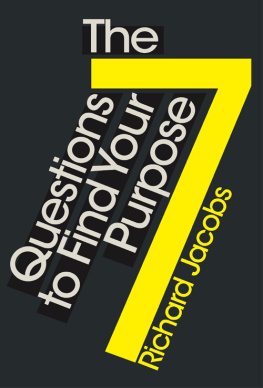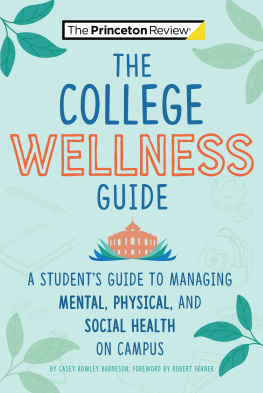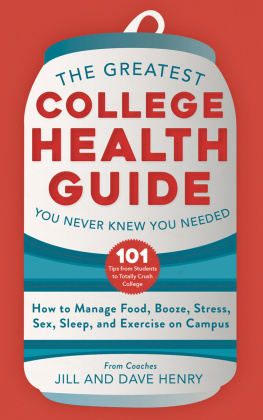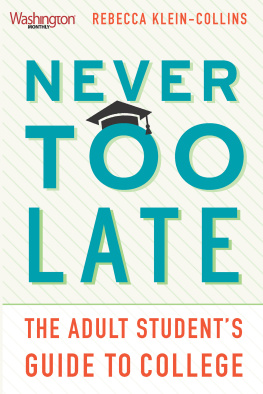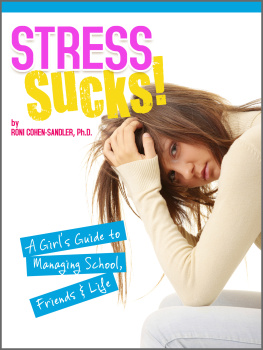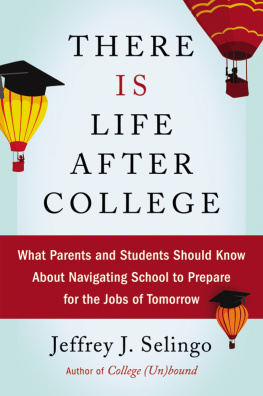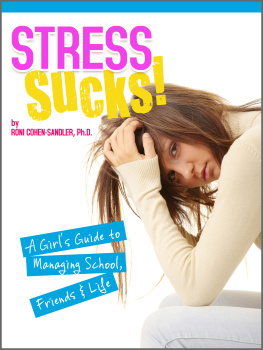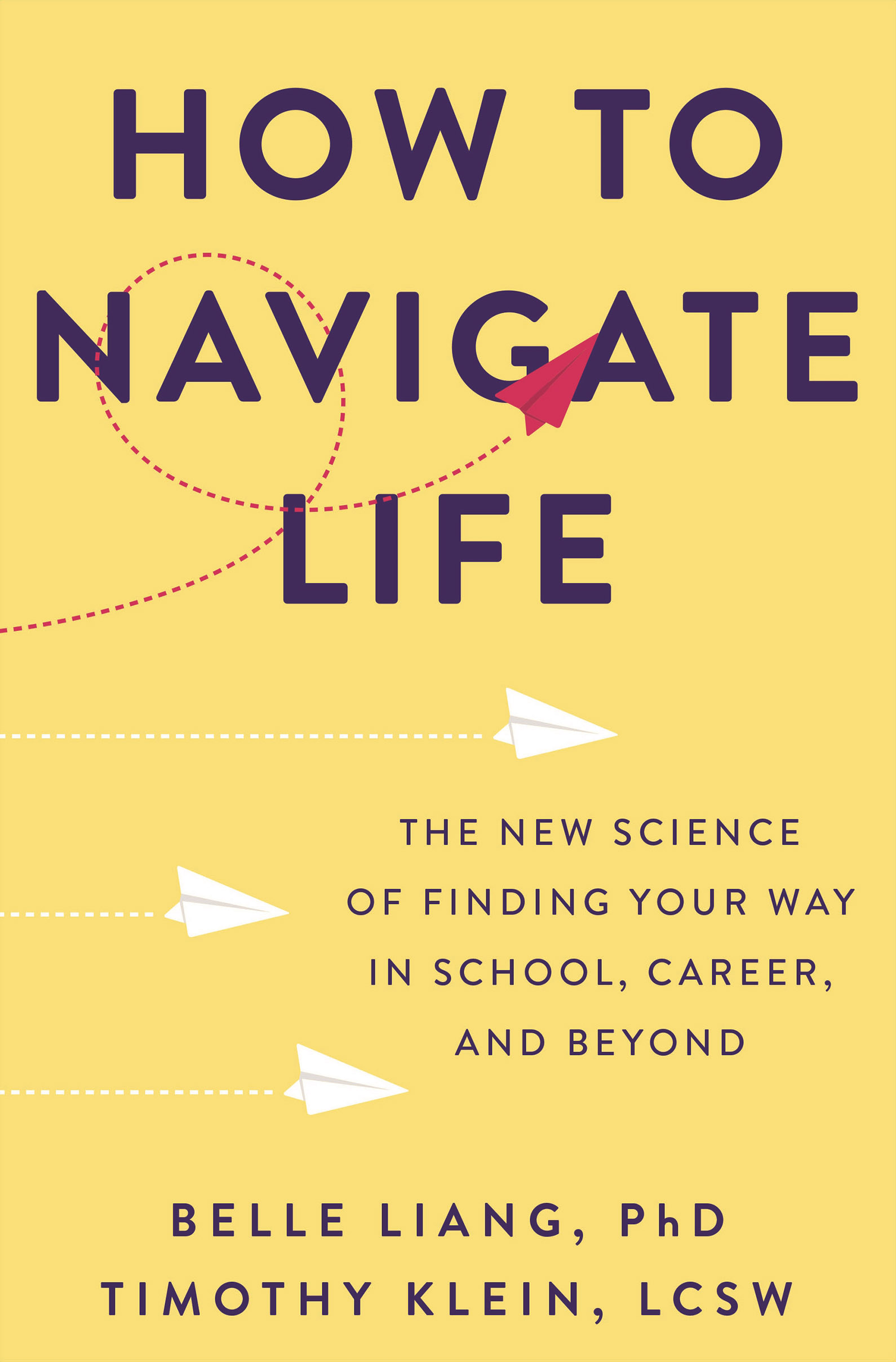Contents
Guide
Pagebreaks of the print version

The author and publisher have provided this e-book to you for your personal use only. You may not make this e-book publicly available in any way. Copyright infringement is against the law. If you believe the copy of this e-book you are reading infringes on the authors copyright, please notify the publisher at: us.macmillanusa.com/piracy.
To our parents, who trusted us to figure things out, and to our kids, whom we trust to do the same
This is a book about how to equip young people to navigate school, career, and life with joy and excellence. The first step to doing this job well as parents, educators, or life mentors is to know ourselves. We have to be students of ourselvesby learning who we are, where we came from, what we believe, and where these beliefs came from. How we raise and guide our people is deeply influenced by our own stories. If were aware of the core values and scripts that were passed on to us from our families of origin, we can be compassionate toward ourselvesunderstanding our knee-jerk reactions to our students and their life choices. We can be intentional about what we choose to pass on to the next generation. This has been true for us, as youll see from our stories.
Belles story: I am the middle daughter of first-generation Chinese immigrants who, like their compatriots, sacrificed heroically so that my brothers and I could get an education in the United States. My father borrowed the little money his sister had to come to the United States to pursue his graduate degree on a student visa. This decision came with another, more significant cost: leaving behind his wife and six-week-old firstborn child, my brother. It was two years before they were reunited on American soil. My mother abandoned her career aspirations when she arrived in the United States, leaving her family and home to live in a country where she struggled to work, communicate, and feel a sense of belonging.
She pushed through language barriers to befriend neighbors so I would have neighborhood playdates. She clipped coupons so I could buy trendy clothes. All of this probably helped me fit in with the popular kids at my affluent suburban high school. My parents relished the thought that I was a teachers pet, two-time homecoming princess, student leader in clubs, class government officer, and a graduation speaker at the John F. Kennedy Center. These achievements were shamelessly evoked at afternoon tea with the aunties, because they satisfied everyones expectations for me. They were proud that I fit in so well.
All their dreams and efforts to make ends meet were fueled by hopes that my brothers and I could achieve more. They expected that we would. It was never a question of whether I would go to college, it was a matter of where I went and what I did there to become successful. I internalized the cultural value that the point of education was to achieve financial security and respect in society. Like other first-gen people, we bought into Horatio Algers myth that if you worked hard, you could achieve the American dream, not only for yourself, but to validate your parents sacrifices. All of this prepared me to be the most successful student I could be. A rule-following, risk-averse, people-pleasing success. I was the opposite of Cheryl Strayed in the wild, driven by a free spirit to conquer the dangers of the Pacific Crest Trail. My ambition was to take the safest path to financial security and prestige.
I had gleaned from my upbringing that there were certain careers that were especially acceptable. Doctor, lawyer, engineer. I later realized that these were actually the acceptable choices for boys, but that there were alternatives for girls.
Up to this point, whenever faced with a big decision about school, work, and life at large, I asked myself: What should I do? Often, the answer that felt right to me was the one that matched the expectations of those around me. After two years of bouncing around multiple majors in the hard sciences and internships in health fields, a well-meaning auntie offered me this career guidance: Dont work so hard, youll prematurely age and lose your beauty. Just take good care of your hair and skin (your best assets), marry a doctor, and youll be fine.
Imagine how those words landed on an American college woman. Yep, just the nudge I needed to begin listening more closely to my own heart. And trusting the wisdom and direction that could be found there. The women in my life were smart and competent, while content to sit in the back seat. Few were trailblazers, civic leaders, public speakers. With the most honorable intentions, they sacrificed personal goals and derived their identities from others. I realized that the standard-bearers I had followed were no longer a perfect match with my own journey. My spiritual-faith adventure provided fresh insight and courage for rewriting the script, following my call.
When I announced to the family that I planned to pursue a career as a psychologist, it was as if I had announced that I was dropping out of college. Had I thought this through? Could I get a job doing such a thing? They saw a huge distinction between doctors who focused on peoples mental health and those who treated their physical health. But they comforted themselves by thinking girls shouldnt work too hard and that I would be fine as long as I married a real doctor, who could take care of me.
My transformation continued during graduate school, where I met a mentor and role model who believed in me and nurtured my creativity and confidence. She introduced me to community psychology, a field focused on addressing systemic injustices and partnering with disadvantaged and marginalized people. I felt such a sense of mission Here was a way that my values, strengths, and skills aligned with meaningful work that could make a difference in the world.
I need to say that as I write this, I am so genuinely grateful to my cultural roots, family, and mentors for watering the seeds of my purpose today. At the same time that there are cultural and moral virtues to my story that I deeply cherish (like respect for your elders and sacrifice for others), there are imperfections. And all of it inspires my current work. I see that while the world is progressing, stories like mine reflect an ongoing ethos that reaches beyond the immigrant experience. In hundreds of our research interviews and surveys, adolescents (and their parents) lamented: Im living someone elses life. I dont know who I really am and what Im really living for, apart from others expectations of me. Similarly, Id been basing my identity on what others told me about myself when I was a child. Trying to mold myself into someones stereotype of me left me exhausted and confused. But as my understanding of who I am came into sharper focus during my later college and adult years, this understanding became my guide. It continues to shape what I value and believe, and how I feel, act, and connect. Bren Brown calls this embracing of who you really are true belonging:
True belonging is the spiritual practice of believing in and belonging to yourself so deeply that you can share your most authentic self with the world and find sacredness in both being a part of something and standing alone in the wilderness. True belonging doesnt require you to change who you are; it requires you to be who you are.


